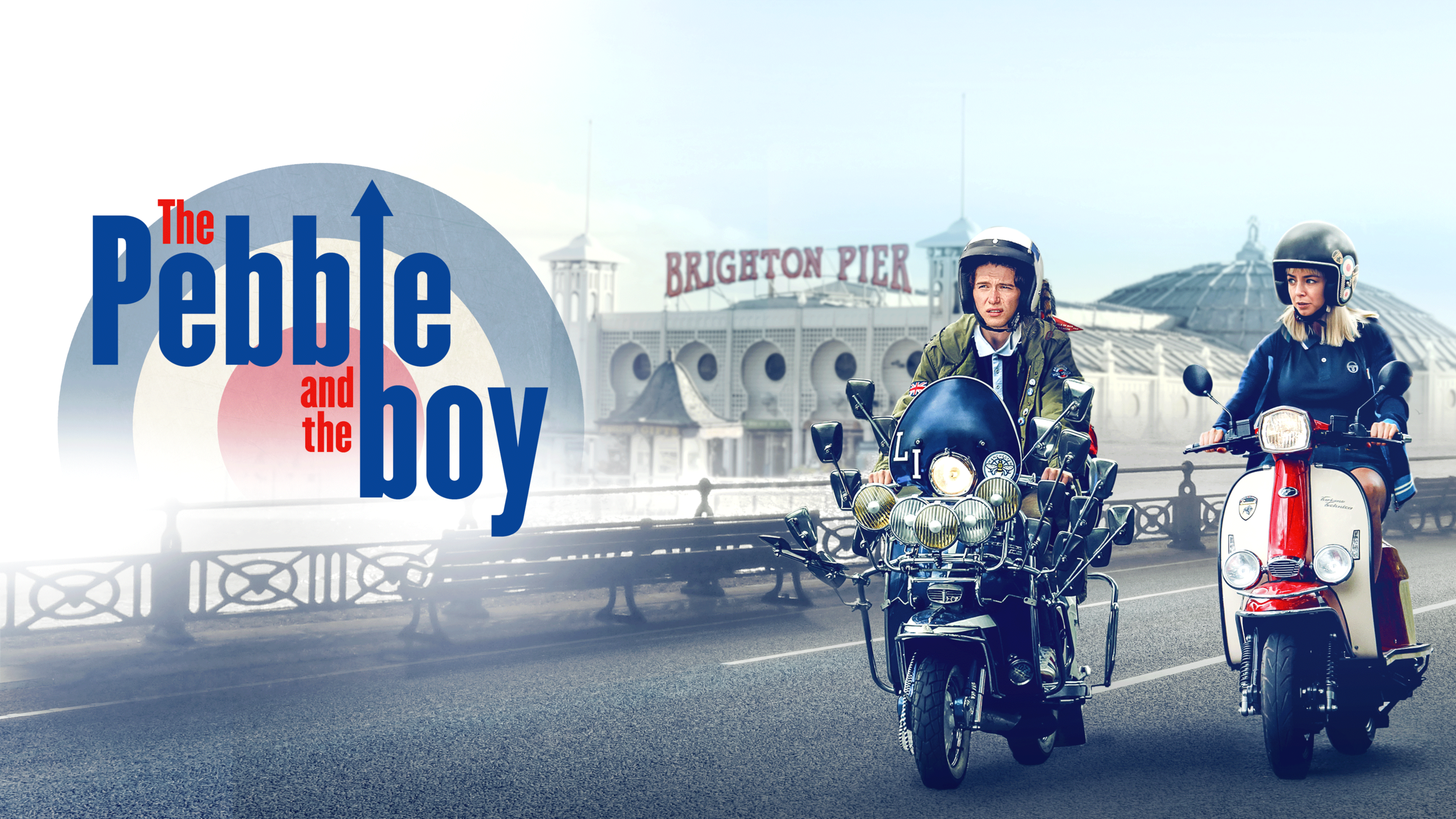THE PEBBLE AND THE BOY AND WHAT IS A MOD IN 2021?

In Conversation with Writer and Director Chris Green
The Pebble and the Boy is a film that centres around the Mod subculture, but set in present day. The film uses the rich tapestry of the Mod movement as a vehicle to drive the story of a teenager trying to reconcile the chequered history of recently deceased Dad whilst trying to arrange the jigsaw of his own identity.
The Pebble and the Beach is a title from a Paul Weller song, that features on the films soundtrack as well as The Jam. It’s in select cinemas now. To discuss the film, along with observations of what is a Mod in present day, is writer and director Chris Green.
Q. Chris the film is out now where can people watch it?
CG: We have 99 screens across the UK and Ireland which is beyond my wildest imagination, for what is a little British independent film. This is the time to enjoy.
Q. And is this a personal film for you? Were you ever a Mod?
CG: It’s a personal film, it’s inspired by a lot of things. The plan for this film came before all the other films I made. This is very much the passion project and has elements of me in it. There are parallels between me and John (the lead character) in my dad died suddenly when I was 15 of a heart attack, and I was a parka wearing, Harrington wearing, Mod at the time.
Q. Can you give me your interpretation of what a Mod is?
CG: MODS started in the 60s. It’s a way of life. It’s clean living in difficult circumstances I think the first motto of the Mods. It started when men and women first had disposable income really for the first time, after the second world war and started spending it on fashion and music. They started wearing big parkas over their sharp suits for getting around London especially.
And then came the scooters, the Vespas and the Lambrettas. I don't think it’s much of a movement now, but it's still there.
Q. Do you still wear Mod clothing now?
CG: I still love to wear some of the brands that are synonymous with Mods, Gabicci Vintage being one that I'm wearing at the minute. Fred Perry, Pretty Green, that’s the stuff I buy most.
Q. How do you connect with the Mod community today?
CG: We have found there are a lot of modernists out there. With the advent of social media I've linked up with 1000s who still turn out who still pride themselves on the ‘once a Mod always a mod’ ethos that Paul Weller famously coined.
Q. Why is Brighton still the epicentre for the Mod movement all these years on?
CG: Brighton is the mecca. We discovered it was a media hype surrounding the riots between the Mods and the Rockers in 1964, but that’s when the subculture of Mods was in the general public. It was in the London news and in the Daily Mirror and the Express about riots between Mods and Rockers.
Then Pete Townsend wrote the great rock opera Quadrophenia in 1974 and then the torch was relit. It came to flame again 78/79 when the film Quadrophenia came out.
That was a second generation the mod revival from ‘79-84 of which I was one of those kids. The 90s was the last big resurgence. Liam Gallagher considers himself a Mod, a new version of Mod.
Q. And what are Mods listening to nowadays?
CG: There are a lot of cool bands round at the moment; The Electric Stars, Spinner, both who have tracks on our film.
Q. And are you ok with being compared to Quadrophenia?
CG: I’m very aware of the shadow that Quadrophenia casts. What I wanted to do was fall into the category of a Mod film but make it as far away from the story of Quadrophenia. 1. We set it in the present day. 2. It’s a nostalgic reflection on Mod. Mod of the late 70s early 80s. There is a slight nod to Quadrophenia, but I wanted to stay a million miles away from it.
The Pebble and the Boy is out in select cinemas now
Catch the full interview on The From Tailors With Love podcast, episode #137
Founder of this eponymous blog, focusing on men's fashion & lifestyle.








